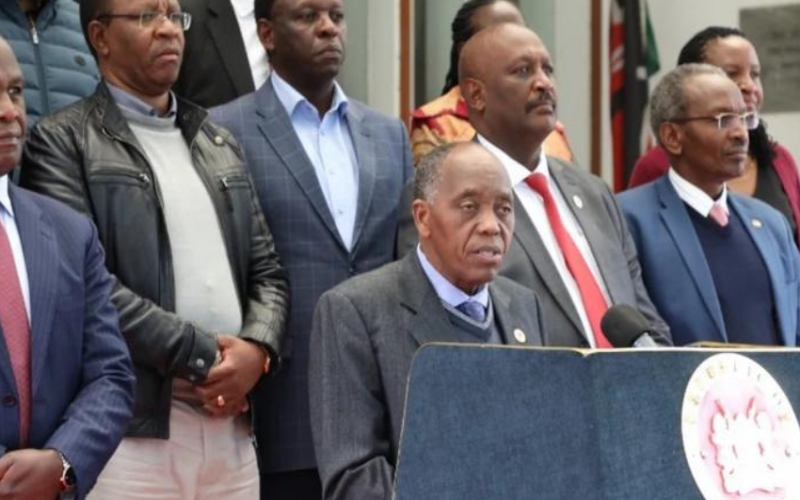
The National Security Advisory Council, a top state organ has been appearing in the headlines on allegations of interfering with the electioneering process according to Chebukati’s affidavit.
The council is a powerful organ of the government established by the constitution and just like any other state agency should be partisan and impartial in the discharging of its duties.
The council is mandated with the role of ensuring safety and security to the over 40 million Kenyans within the Kenyan borders.
According to the Constitution of Kenya, the National Security Advisory Council shall comprise the Cabinet Secretary for Interior and Coordination of National Government, The Deputy President, the Cabinet Secretary for Defense, the Cabinet Secretary for Foreign Affairs, and the President.
Other members of the Security Council include; the Inspector General of the National Police Service (NPS). Chief of Defence Forces, the Attorney General, and the Director General of the National Intelligence Service (NIS).
Functions and responsibilities of the National Security Advisory Council
•Deploying the national forces for peacekeeping missions within Kenya and beyond the borders
•The council assesses the state of security in the nation, makes informed suggestions, and tables a report before parliament every once a year.
For the first time in history, the NSAC is embroiled in an election petition battle. This is after Chebukati, chairman of the IEBC accused members of the Council of wanting to subvert the will of the people on the duly elected president.
Members of the NSAC listed in Chebukati’s affidavit include Inspector General of Police Hillary Mutyambai, Kennedy Ogeto-Solicitor General, Kennedy Kihara-Principal Administrative Secretary at the Office of The President, and LT. General Francis Omondi Ogolla, the Vice Chief of Defences.
Joseph Kihara, NSAC chairman has downplayed the accusations in a replying affidavit to the Supreme Court.
He states that any meeting held was routine during any electioneering period. He also asserted that the purpose of the meeting was to address the delay in the announcement of the presidential elections that was causing tension in the country.
He also asserted that the only role NSAC had in the election process was to provide critical security advice surrounding the transmission, tallying, verification, and declaration of the results of the presidential elections.
"The meeting was necessitated by the fact that the NSAC in the discharge of its mandate had become ceased of information to the effect that the delays in declaring the results of the presidential elections and how results were being transmitted including the stoppage of the public display of results had generated considerable public anxiety and tension and risked creating the opportunity for chaos, violence, and insecurity in parts of the country," he stated.
By akirimi | 2 years ago
By Fridah Wangechi | 1 year ago
By Ezra Manyibe | 2 weeks ago